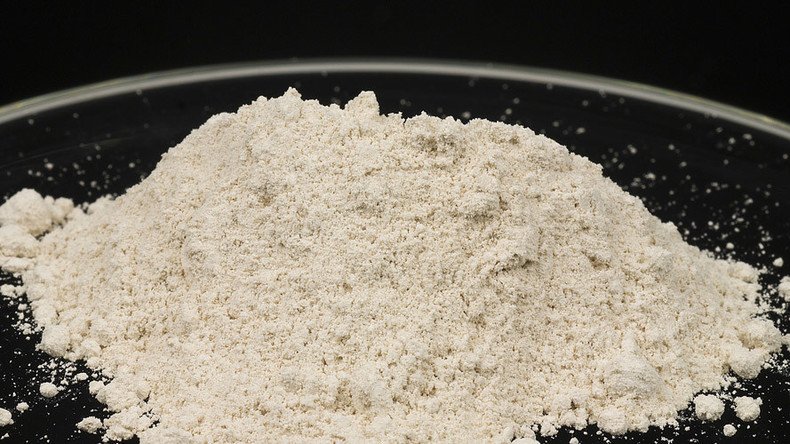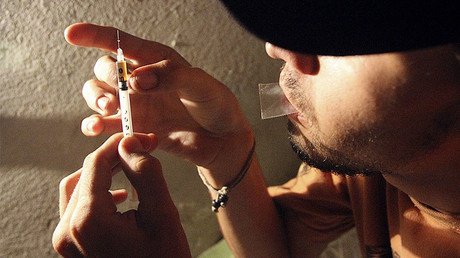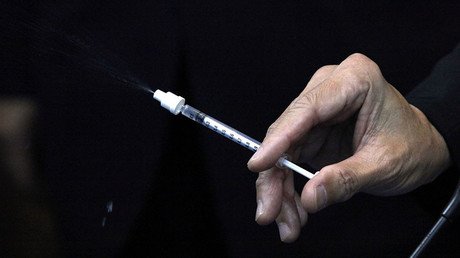Heroin should be given to addicts on prescription, official UK drug advisers say

Prescription heroin and other opioids should be available to addicts to use in supervised injection rooms, official UK drug advisers have said.
The Advisory Council on the Misuse of Drugs (ACMD) says users being prescribed opioids to maintain their habit would help to reverse soaring numbers of drug deaths in Britain.
Overdoses hit record levels in England and Wales last year, exceeding the number of deaths from road traffic accidents, according to the Guardian.
In a letter accompanying Monday’s report, the ACMD chairman, Les Iversen, told Home Secretary Amber Rudd: “The ACMD is of the view that death is the most serious harm related to drug use.
“In recent years, there have been substantial increases in the number of people dying in the UK where illicit drugs are reported to be involved in their death. The largest increase has been in deaths related to the misuse of opioid substances; 2,677 opioid-related deaths were registered in the UK in 2015.
“The most important recommendation in this report is that government ensures that investment in opioid substitution therapy (OST) of optimal dosage and duration is, at least, maintained,” he added.
The ACMD’s recommendations come as the government plans cuts to local authority public health grants, the money which funds drug treatment services.
Last month, the British Medical Journal (BMJ), the UK’s most widely-read medical journal, said for the first time that doctors have an “ethical responsibility” to back the legalization of narcotics.
It said laws against drug use have harmed people across the world, and stressed that drug addiction should be viewed as a health problem and police involvement must end.
The call for reform reflects a shift in medical opinion. In June, Britain’s two leading health bodies, the Royal Society for Public Health and the Faculty of Public Health, called for the personal use of drugs to be decriminalized.
The group said criminalizing users deters them from seeking medical help and leads to long-term harm, such as exposure to hard drugs in prison, the breakup of families and loss of employment.
In October, a plan for the UK’s first ‘shooting gallery’ or ‘fix room,’ where heroin addicts are able to inject safely with clean needles under supervision, was announced for Glasgow.
Responding to the ACMD’s report, the Home Office told the Guardian that the government had no intention of following up on its recommendations.
“Drugs can cause untold harm and this government is acting to reduce their devastating impact,” a spokesperson for the department said.
“Drug misuse among adults and young people has fallen in the last 10 years and we are working to educate young people about the risks, to help those who are dependent through treatment, and to clamp down on the illicit trade.
“This government has no plans to introduce drug consumption rooms but recovery will remain at the heart of our approach. We are grateful to the Advisory Council on the Misuse of Drugs for their advice and will respond in due course.”














